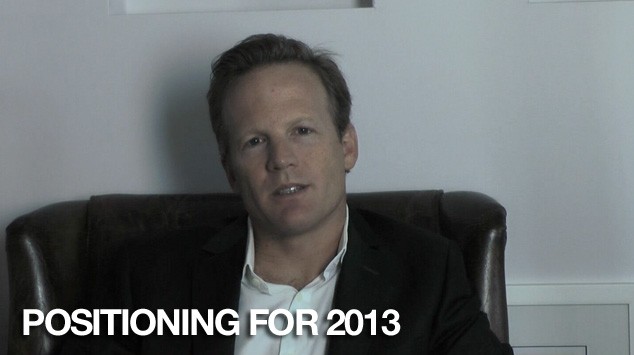Positioning for 2013 (15/1/2013)
Tim joined Montgomery in July 2012 and is a senior member of the investment team. Prior to this, Tim was an Executive Director in the corporate advisory division of Gresham Partners, where he worked for 17 years. Tim focuses on quant investing and market-neutral strategies.
This post was contributed by a representative of Montgomery Investment Management Pty Limited (AFSL No. 354564). The principal purpose of this post is to provide factual information and not provide financial product advice. Additionally, the information provided is not intended to provide any recommendation or opinion about any financial product. Any commentary and statements of opinion however may contain general advice only that is prepared without taking into account your personal objectives, financial circumstances or needs. Because of this, before acting on any of the information provided, you should always consider its appropriateness in light of your personal objectives, financial circumstances and needs and should consider seeking independent advice from a financial advisor if necessary before making any decisions. This post specifically excludes personal advice.


Other thoughts about 2013. Already a few brands that people are well known are going under and it seems to vindicate my belief that a good brand is worthless unless there is a form of competitive advatnage behind it.
My whole “castle” framework is built around a good company having three aspects.
1. a competive advantage
2. a good brand
3. strong finances
A good brand is only as good as the competitive advatage that comes before it. For example, Qantas is a big brand and so are car manufacturers but the nature of the industry makes it hard for them to stay ahead if ever.
I believe the key for companies in todays age i believe will come down to innovation and not the lip service variety (every company calls themselves “innovative” these days).
I was not surprised to see Apple shares starting to be a bit less popular as they are now more of a follower rather than a leader in its field. After Jobs, Apple seems to not have the innovative edge coming through and i think a major reason why they decided to start paying dividends.
So there you go, my aguement is a brand is only as good as the things going on behind it. Big, well known and iconic brands are not a defence in itself so “blue chips” are a potential value trap. The key to investors who look at this qualitative aspect will be to find companies whose brand is backed up by a competitive advatnage and innovation that makes the brand actually have a bit of substance and bite otherwise it is no different than the spruikers outside small clothing and jewellry stores saying it is the biggest sale in town.
Interesting thoughts as always. It makes sense that investors might be starting to shift less from cash and more into equities as the risk/reward trade off in holding cash becomes less attractive and that those same investors are perhaps shifting into the larger “blue chip” companies with high dividend yield, as this is as close to the cash investments they are probably used to.
Safety/risk and income, i would imagine, would be the main items they are looking for which is why they were previously holding cash. To most retail investors at least, size equals safety. We know that is not necessarily true and it isn’t the size that matters but how the managers use it.
The last ponit is becoming an increasingly larger part of my analysis on companies. It is becoming clear to me that certain companies (and ones i have previously been fans of) appear to have very little idea as to what their customers are experiencing and thinking and are becoming more and more irrelevant. I want to see companies that are showing an innovative ability to change and offer new channels of their service (particularly in consumer discretionary) that match what is happening in the markets today.
Consider Orotons speed and transition to online retailing compared to that of David Jones and Myer. their customer bases are similar if not the same. One company saw it and the other didn’t. I still think it is embarrassing that even westfields got on board online retail before the big department stores as well but i will stop now for fear of heading into rant territory.
A company that has good economics working for it, a distinct competitive advantage, a bit of brand equity and management that know what is happening in the market place is what makes up a good company and one that will likely be able to sustain good returns on its shareholders funds and increase value.
I will allow those previosu cash investors to invest in “blue chips” for dividend yield, i see very few companies that have the above working for them in that space but i wish them all well.
Hi Colin. Agreed…we’ll improve sound quality for future recordings.
Good to hear your thoughts, not so good with all the back ground noise. Can you please record in a quiet office. I like the casual approach but not the distraction of other people talking and phones ringing.